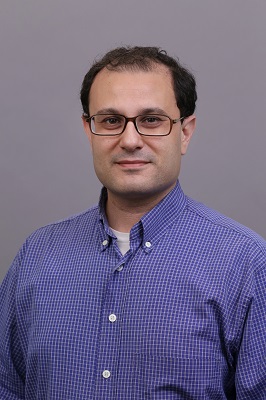
Bio:
Mohamed Zahran is a professor with the Computer Science Department, Courant Institute of Mathematical Sciences, New York University. His research interests span hardware/software interaction, high-performance exascale computing, architecture of heterogeneous systems and biologically inspired computing. He has more than forty refereed papers; and recently published a book, through ACM books, about heterogeneous computing from hardware and software perspectives.
Zahran took many roles in the organizing committees of several ACM and IEEE funded conferences, such as Computing Frontiers (CF), IPDPS, HPCA, ICS, and SC. He also served in review panels at governmental institutions such as the National Science Foundation (NSF) and the Department of Energy (DoE); as well as a reviewer and member of technical program committees of many conferences and journals from both ACM and IEEE.
Zahran received his Ph.D. in Electrical and Computer Engineering from University of Maryland at College Park. He is a senior member of ACM, senior member of IEEE, and full member of Sigma Xi scientific honor society.
Available Lectures
To request a single lecture/event, click on the desired lecture and complete the Request Lecture Form.
-
AI Support for Architecture
There are a handful of chips to support machine learning (ML) training and many startups that design chips for inference. All of this is the hardware support for AI. In this talk, we will...
- GPUs in Machine Learning and Big-Data Era: The Good, the Bad, and the Ugly
We live in an era where data volume, diversity, and speed are skyrocketing. As a result, two main tracks are needed: algorithms to deal with that and hardware to process it. In this talk, I...- Hardware Support for AI
With machine learning (ML) techniques infiltrating many aspects of our life and businesses, an important question to answer is: what is the best hardware to use for my particular case? In this...- Processing in Memory: Opportunities and Challenges
One of the main factors that negatively affects performance and power consumption of a computer system is communication. That is, moving data from one point to another, especially among cores or...- The Era of Accelerators: Are they Really the Solution for Post-Moore?
With the stagnation of Dennard scaling and the severe technical and economic problems Moore’s law is facing, we need to be prepared for the post-Moore era. The main solution, so far, is to...- The Road to Exascale: Challenges and Opportunities
The increasing complexity of scientific disciplines is continuously driving the need for more powerful computing machines. While petascale machines were once adequate, we are now...To request a tour with this speaker, please complete this online form.
If you are not requesting a tour, click on the desired lecture and complete the Request this Lecture form.
All requests will be sent to ACM headquarters for review.
- GPUs in Machine Learning and Big-Data Era: The Good, the Bad, and the Ugly
